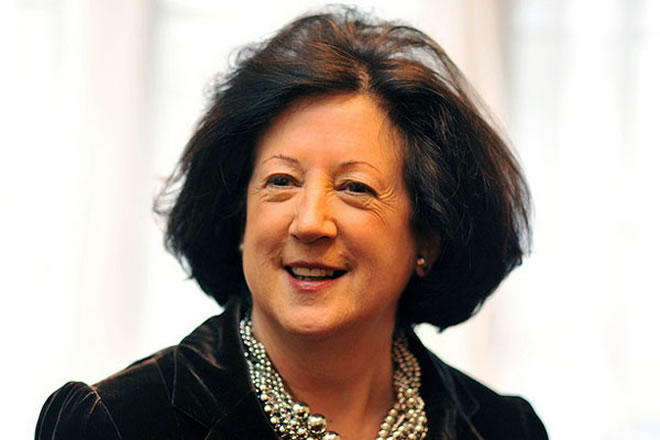Tuesday December 8, 2015
By The Right Honourable Baroness Anelay

The 25th of November was the International Day to Eliminate Violence against Women and the start of the 16 Days of Activism against Gender-Based Violence Campaign. I took this opportunity to meet leading women from the British Somali Diaspora, to reinforce the UK’s commitment to women’s empowerment in Somalia and to hear their views on the challenges faced by women, both in Somalia and in the Diaspora community here.
The women I met displayed an unwavering commitment to enabling women and girls, both in Somalia and the UK, to have a future free from violence. They raised a number of important issues and concerns during our discussion. As the Prime Minister’s Special Representative for Preventing Sexual Violence in Conflict, I share their concerns and am committed to ensuring that Somalia remains at the forefront of the UK’s efforts on Women, Peace and Security.
The need for further discussion about how we respond to female genital mutilation (FGM) in the UK was apparent from our conversation. We continue to work across the UK government to ensure that its policies on FGM are in the best interest of the women and girls they are trying to protect. We have launched a £3 million national FGM Prevention Programme to improve the way in which the NHS responds to the health needs of girls and women who have undergone FGM, and to support prevention. However, it was evident that we still have work to do to ensure that those who have been subjected to the practice do not feel stigmatised or re-victimised.
We also spoke about the taboo surrounding domestic violence in Somali communities and how difficult it can be to report such violence, especially when it is perpetrated by family members. I was concerned to hear about the exploitation and trafficking of young girls in Somalia. Lacking an education and facing unemployment, many vulnerable girls are targeted by those who are supposed to protect them and forced into potentially harmful relationships.
In order to ensure that women and girls are no longer targets for exploitation, it is essential to raise awareness of women’s rights and to provide them with opportunities to improve their socio-economic status. This is a key objective of many of our gender programmes in Somalia.
One example is the support we are providing to non-governmental organisations to improve the response to, and prevention of, sexual and gender based violence in three districts of Mogadishu. Between July and September, 397 victims received specialised healthcare and legal aid as a result of this support. Furthermore, 60 victims were provided with skills training that will enable them to open their own small businesses. The aim is to help survivors take control of their lives and escape stigma and poverty.
Men and boys also have an important role to play in empowering women and girls. The UK is funding boys’ clubs in schools in Mogadishu with the aim of improving boys’ awareness of gender issues and understanding the importance of respecting girls and women.
With elections due, 2016 will be a crucial year for Somalia and represents an opportunity to push women’s empowerment forward. Women have played an active and vibrant role in the discussions that have taken place across Somalia on the electoral process for 2016. This has led to strong domestic support for the adoption of a women’s quota in order to guarantee that women are appropriately represented in Somalia’s electoral process – both of which the UK strongly supports.
We are also providing technical assistance to the Ministry of Women and Human Rights. This will help the Ministry to deliver the important commitments Somalia has made in its Human Rights Road Map, and National Action Plan on Ending Sexual Violence.
Our partnership with Somalia is driven by a commitment to a more stable, peaceful and prosperous future for all Somalis. The empowerment of women will be vital to the realisation of this goal. After all, how can we expect to bridge the gap between fragility and stability if the human rights of half of Somalia’s population remain threatened by violence and inequality?
As the women I met on 25 November demonstrate so inspiringly, the British Somali Diaspora community are important agents for that change. Together, we can make a Somalia free of gender based violence a reality.